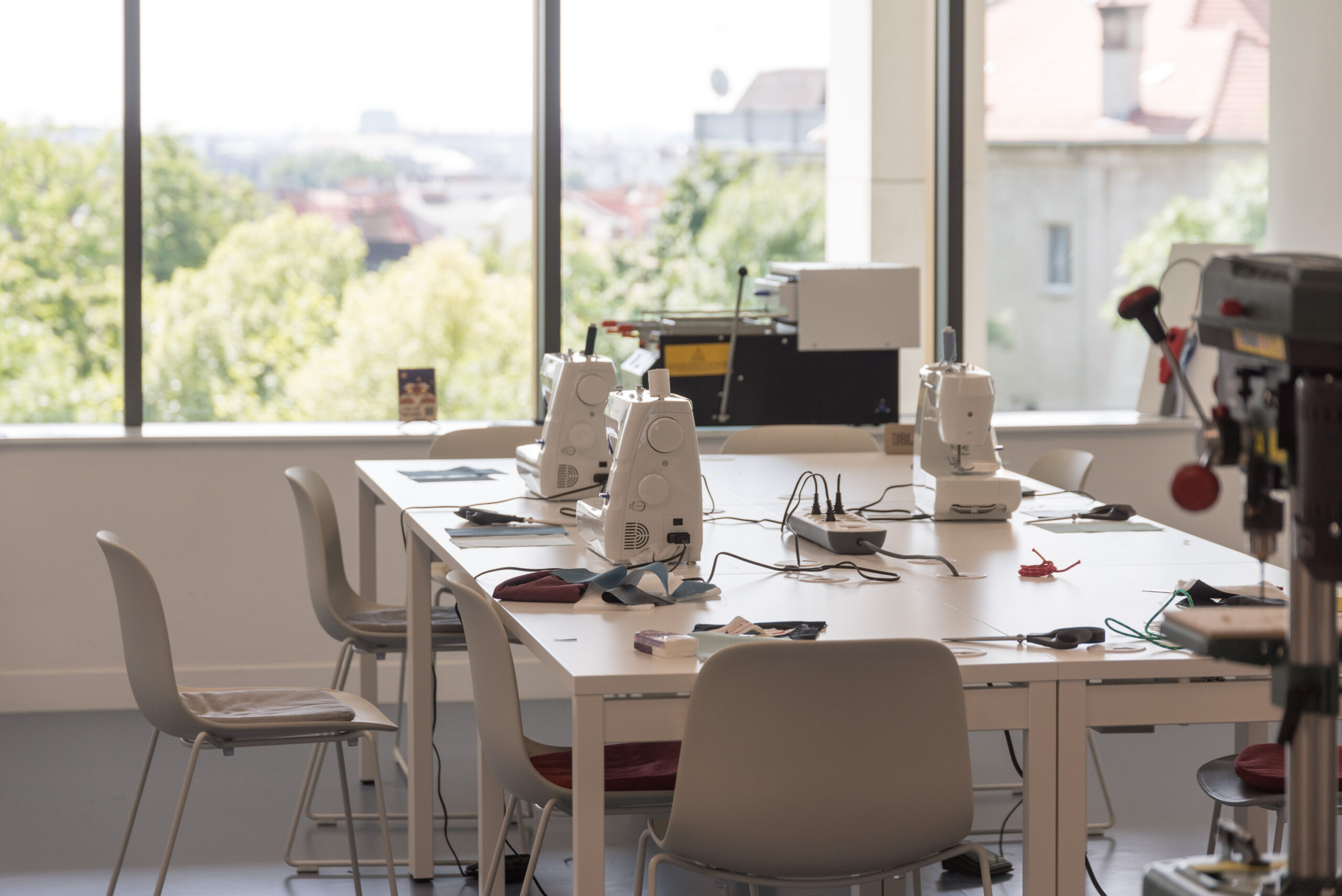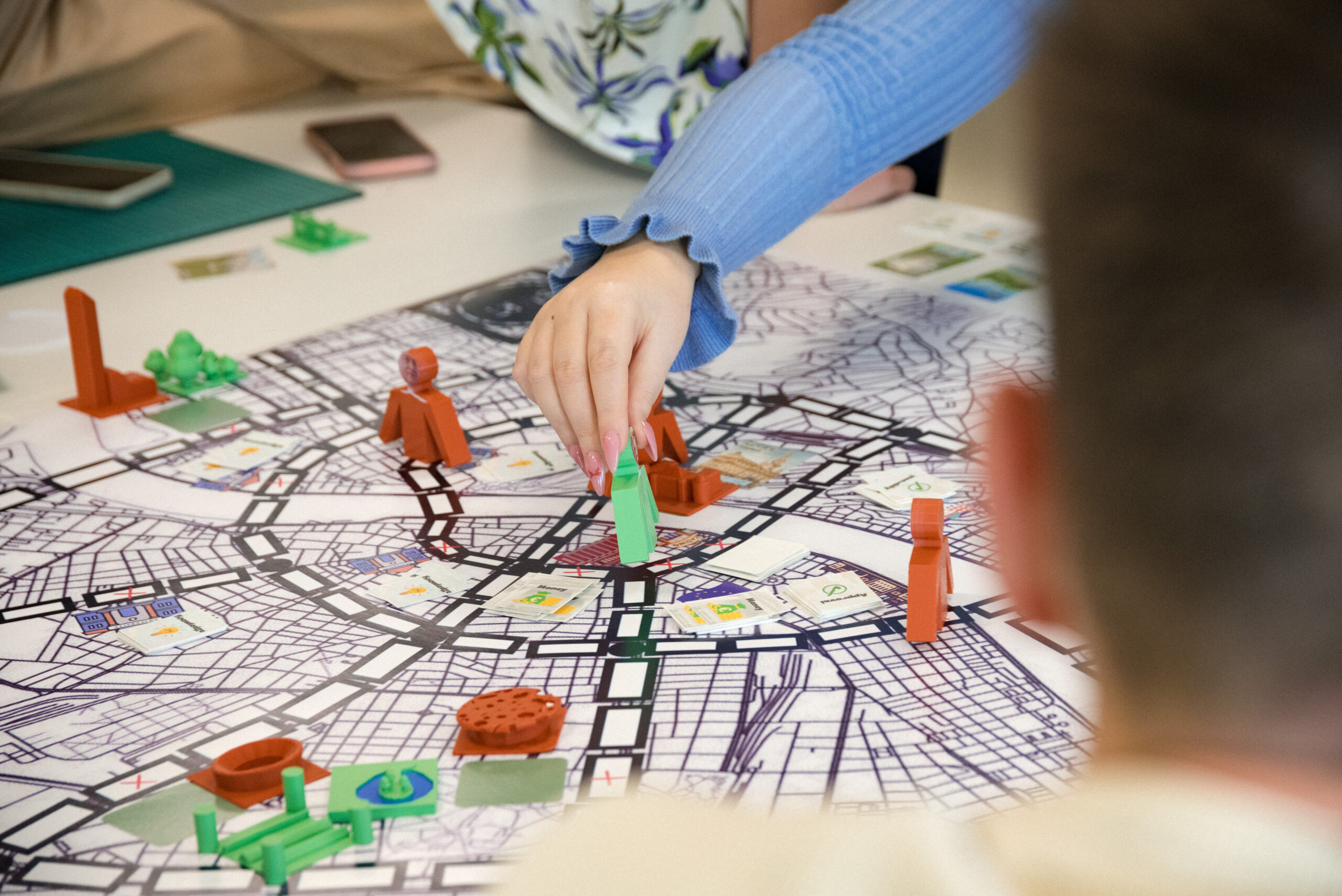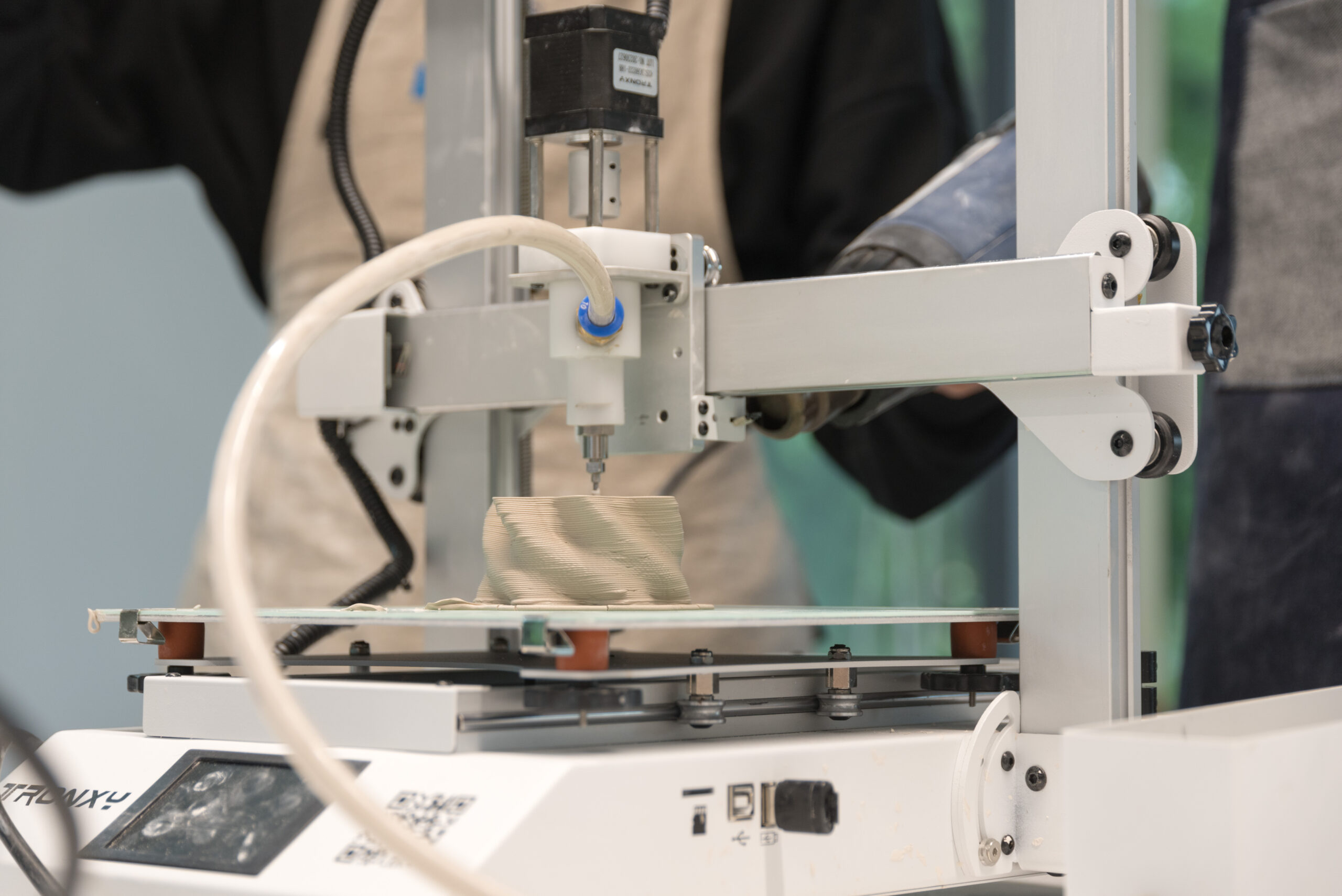#makerspace #economics #hands-on approach
Piloting a Makerspace at a university of economic sciences
The education landscape is evolving, and so is how universities approach design, innovation, and economic sustainability. In March 2024, FabLab Budapest took a significant step forward by launching a pilot program integrating distributed design principles into its curriculum through the newly established Corvinus Makerspace in partnership with Corvinus University Budapest. This initiative reflects a global shift toward hands-on, interdisciplinary learning that prepares students for the challenges of an increasingly complex world.
Economists need a designer’s mindset: sustainability and the circular economy are becoming critical topics in business and economic planning. To navigate this shift effectively, we believe that future economists must adopt a designer’s mindset—one that is flexible, creative, and focused on systems thinking. To integrate Design Thinking into economic education, we need:
- Understanding material and production costs through hands-on experimentation
- Developing circular economy strategies that minimise waste and maximise efficiency
- Encouraging innovative business models that incorporate local and digital manufacturing
By participating in makerspace activities, business students at Corvinus University gain a deeper understanding of how design decisions impact financial, environmental, and social outcomes.
Distributed design is a methodology that moves away from centralised production models and embraces local, digital, and sustainable manufacturing practices. This approach empowers students to work on real-world projects that combine digital fabrication, traditional craftsmanship, and sustainable design strategies.

Key Benefits of Distributed Design in Education
- Encourages hands-on problem-solving by allowing students to prototype and iterate in real-time
- Fosters interdisciplinary collaboration between designers, economists, and engineers
- Promotes sustainable production models by emphasising local resources and digital tools
- Develops critical thinking about consumption, materials, and product life cycles.
Makerspaces are becoming essential components of modern education. They are more than just workshops; they are innovation hubs encouraging creativity, technical skill development, and collaborative learning.
At Corvinus Makerspace, students engage with digital design and fabrication tools, traditional craftsmanship techniques, and sustainability-focused design practices that explore repair, upcycling, and circular economy models By engaging with these tools and methodologies, students move beyond theoretical knowledge and gain practical skills directly applicable to the workforce.
User Journeys: Learning Through Experience
To create a seamless and engaging learning experience, Corvinus Makerspace has developed structured user journeys that cater to students of varying expertise levels and interests. These journeys serve as pathways for exploration, skill-building, and innovation. Each journey is designed to offer incremental skill-building, leading students from basic knowledge to more complex problem-solving and innovation-driven projects.
Threshold Journey: Building Digital Literacy
This entry-level journey equates students with the foundational skills required for advanced making and design projects. It includes:
- 3D Modeling & Printing Basics – An introduction to computer-aided design (CAD) and additive manufacturing.
- Graphic Design for Production – Learning vector-based design for laser cutting and engraving.
- Electronics & Coding Fundamentals – A hands-on introduction to microcontrollers and basic programming.
Traditional Craft Journey: Reviving Hands-on Making
For students interested in craftsmanship and material-based design, this journey integrates analog techniques with modern applications. Activities include:
- Bookbinding & Printmaking – Exploring historical methods of producing books and custom prints.
- Embroidery & Textile Manipulation – Learning techniques for decorative stitching and textile-based innovation.
- Repair & Upcycling Workshops – Encouraging sustainability by restoring and enhancing old products.
Digital Design & Fabrication Journey: Creating with Technology
Students ready to merge digital tools with hands-on making can explore this journey, which includes:
- Wearable Tech & Smart Textiles – Prototyping interactive fashion and e-textile applications.
- 3D-Printed Ceramics & Custom Prototyping – Exploring digital clay printing and iterative prototyping.
- Augmented Reality (AR) & AI-Assisted Design – Using emerging technologies to push the boundaries of design.
A Blueprint for the Future
The Corvinus Makerspace pilot project is a model for other universities looking to integrate distributed design into their curriculum. By merging business education with hands-on design methodologies, Corvinus University is shaping a new generation of professionals who are strategic thinkers and proactive creators.
As we refine this program, we invite educators, students, and industry leaders to join the conversation. How can distributed design and makerspaces enhance learning in your field? Let’s collaborate to build a more innovative and sustainable future for education.

